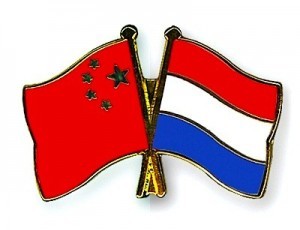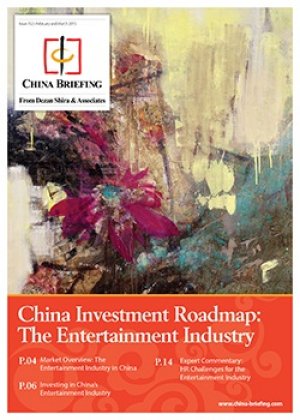New Opportunities for Dutch SMEs as Netherlands PM visits China, Joins AIIB
The Netherlands has decided to join the Asian Infrastructure Investment Bank (AIIB), an international financial institution proposed by China to rival existing institutions like the World Bank, the IMF and the Asian Development Bank.
Prime Minister Mark Rutte announced the intention of the Dutch government during his official visit to China from March 24 to 29. The Prime Minister, accompanied by the Minister for the Environment, visited Shanghai, Shenzhen and attended the Annual Conference of the Boao Forum in Hainan.
The Netherlands has been China’s second largest trading partner within the EU for eleven consecutive years, the third largest EU investor in China, as well as the third largest recipient of Chinese investment in the EU. Globally speaking, the Netherlands is China’s tenth most important trading partner. In 2014, trade between the two nations totaled €44 billion.
To find out what drives the strong business activity between China and the Netherlands, we spoke to Mr Fred Sengers, a Dutch expert on China.
As the Dutch city of Rotterdam is the largest port in Europe, a large share of Chinese exports to Europe find their way into the Netherlands. Mr Sengers explains that this somewhat distorts the picture, as many goods flowing into the country are mostly in transit to other Europeans countries.
![]() RELATED: China to Fund Its Own Asian Infrastructure Investment Bank
RELATED: China to Fund Its Own Asian Infrastructure Investment Bank
Investments by major Dutch multinationals make up a substantial share of the investments into China. Important industries include consumer goods (Unilever, Philips) and chemicals (DSM, AkzoNobel), who have moved large parts of their production operations to China.
Outside of the major multinationals however, Dutch interest in China is only recently picking up. Mr Sengers points out that while traditionally the Netherlands has been a very outward focused and internationally oriented country, recent political instability have turned the nation’s attention inward. Due to frequent government reshuffles, local media and government have been too preoccupied to focus on China’s rising position in the world, and how this might benefit the Netherlands economically.
That said, the Prime Minister’s recent visit and ascendance to the AIIB offer promising opportunities to Dutch companies, for both major multinationals as well as SMEs.
Two key issues discussed during Prime Minister Rutte’s visit were food safety and environmental protection. Both are important concerns of the Chinese government, and fields in which Dutch companies boast a high level of expertise. For this reason, the Dutch Minister of the Environment attended the visit as well, and made a separate trip to Beijing.
The strengthening ties between China and the Netherlands may bring forth new business for Dutch companies in the areas of waste management, agriculture, and water and soil purification. With China’s urbanization rapidly picking up speed, a host of Dutch engineering and architecture firms have also made their way into China.
![]() RELATED: Investing in China’s Future: The New Silk Road Economy
RELATED: Investing in China’s Future: The New Silk Road Economy
As the AIIB aims to finance infrastructure projects within China and throughout Asia to give shape to the emerging New Silk Road, Dutch companies stand to play a major role in areas such as dredging and port management.
Outbound investment from China mainly consists of high-tech companies and acquisition by Chinese firms. Huawei recently opened its European distribution center in the southern Netherlands, and the Shenzhen-based drone manufacturer DJI recently opened its European HQ in the Netherlands as well.
|
Asia Briefing Ltd. is a subsidiary of Dezan Shira & Associates. Dezan Shira is a specialist foreign direct investment practice, providing corporate establishment, business advisory, tax advisory and compliance, accounting, payroll, due diligence and financial review services to multinationals investing in China, Hong Kong, India, Vietnam, Singapore and the rest of ASEAN. For further information, please email china@dezshira.com or visit www.dezshira.com. Stay up to date with the latest business and investment trends in Asia by subscribing to our complimentary update service featuring news, commentary and regulatory insight. |
![]()
China Investment Roadmap: The Entertainment Industry
In this special edition China Briefing Industry Report, we cast our gaze over the broad landscape of China’s entertainment industry, identifying where the greatest opportunities are to be found and why. Next, we detail some of the most important issues for foreign investors to be aware of, including legal, regulatory, and tax considerations specific to the industry. Lastly, we provide an insider analysis of the sector’s unique HR & payroll challenges.
 Employing Foreign Nationals in China
Employing Foreign Nationals in China
In this issue of China Briefing, we have set out to produce a guide to employing foreign nationals in China, from the initial step of applying for work visas, to more advanced subjects such as determining IIT liability and optimizing employee income packages for tax efficiency. Lastly, recognizing that few foreigners immigrate to China on a permanent basis, we provide an overview of methods for remitting RMB abroad.
 Adapting Your China WFOE to Service China’s Consumers
Adapting Your China WFOE to Service China’s Consumers
In this issue of China Briefing Magazine, we look at the challenges posed to manufacturers amidst China’s rising labor costs and stricter environmental regulations. Manufacturing WFOEs in China should adapt by expanding their business scope to include distribution and determine suitable supply chain solutions. In this regard, we will take a look at the opportunities in China’s domestic consumer market and forecast the sectors that are set to boom in the coming years.
- Previous Article Prospettive per l’industria leggera in Cina: Marzo 2015
- Next Article Cina ed Asia: I corridoi per il libero commercio e gli accordi sui benefici fiscali.

 By
By 








